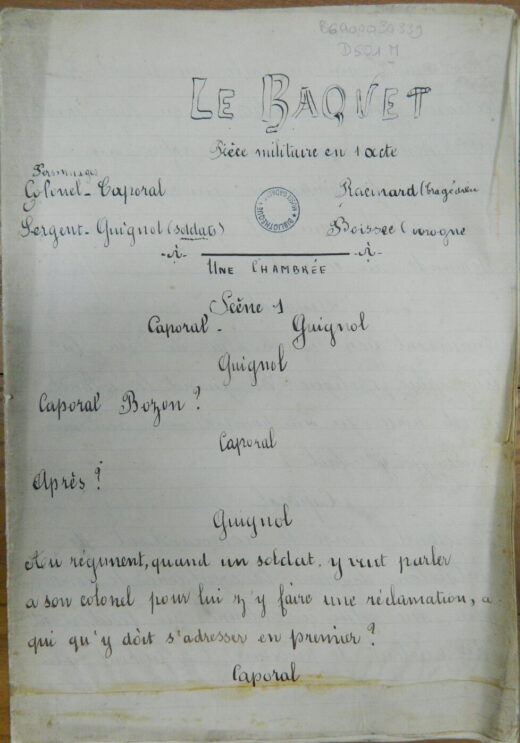
Manuscript
13 pages
Le Baquet
The play deals with daily life in the military: the life of conscripts, chores given to the soldiers and disciplinary measures. The mention of a show in the Arènes de Nîmes, with Mounet-Sully playing Ruy-Blas, would suggest that the play was written at the beginning of the 20th century. However, the length of Guignol’s military service (roughly 662 days) is shorter than that set by the Berteaux law of 1905.
Besides an allusion to Victor Hugo’s Ruy Blas, the play makes several references to Alexandre Dumas’s La Tour de Nesle.
A soldier tries to improve the conditions of his military service
Guignol wants to talk to the colonel about something personal. The corporal shares Guignol’s query. Meanwhile, Guignol must empty the small tub which is used as a chamber pot for the entire section. This is precisely why Guignol wishes to speak with the corporal: he does not want to be given this chore anymore. The sergeant arrives and wants to know what Guignol demands, but the latter does not answer. The sergeant is annoyed and hands him the notebook in which chores are recorded, so that Guignol can give it to the corporal Bozon. The corporal tells Guignol that the colonel is here. The colonel invites Guignol to speak. Guignol explains his small tub problem. The colonel asks the sergeant why Guignol is always given this chore. The sergeant explains that there is a “guignol” (a clown/buffoon) in every section and that the “guignol” is responsible for this chore. The colonel punishes Guignol for his pointless complaint. Guignol can only cry out: “Saint Baquet (Saint Small Tub)! Pray for me!”.